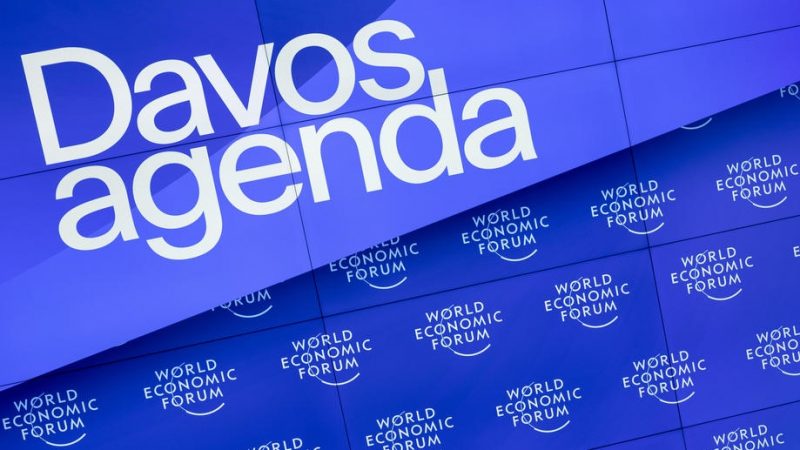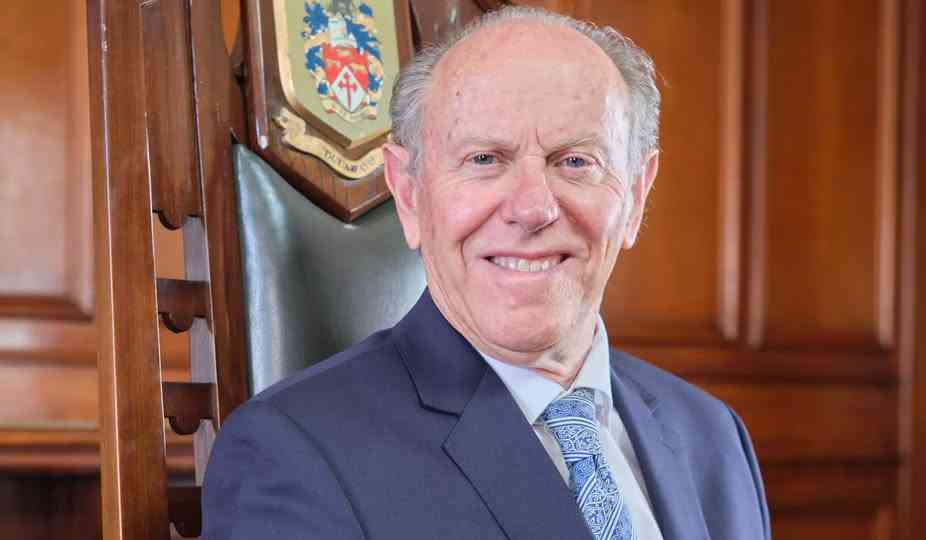
A Zimbabwean delegation last week joined other world leaders and major corporates in the resort town of Davos, Switzerland for the World Economic Forum (WEF), an annual international gathering to shape political, cultural and business agendas at the global level.
This year’s session was held between 22- 26 May under the theme “Working Together, Restoring Trust”.
While attendance of such an event is commendable for any country’s foreign policy, it is critical for an economy such as Zimbabwe’s to evaluate the value-proposition in its attendance, especially considering that tax-payers are going to foot the bill.
It is critical for an economy such as Zimbabwe to establish whether the tax-payer can afford this engagement.
The idea of attending Davos is for re-engagement and to market Zimbabwe as a lucrative destination for investment however this is a daunting task considering inconsistent policies in the economy and our human rights record which prevents investors from coming in.
Impunity and corruption also make the economic environment unfavourable for investment.
The Zimbabwe is open for business mantra will not hold as long as investors are asked to pay bribes before they can setup their businesses in the country.
Following all these observations, it remains that the solution for the crisis that Zimbabwe is facing requires home-grown solutions and setting our house in order before we go out to seek investment.
- Chamisa under fire over US$120K donation
- Mavhunga puts DeMbare into Chibuku quarterfinals
- Pension funds bet on Cabora Bassa oilfields
- Councils defy govt fire tender directive
Keep Reading
Zimbabwe has been invited to Davos before and an important question right now is whether the nation derived any value from prior attendance.
Speaking in an interview at the 2019 installment, Finance minister Mthuli Ncube stated, “Zimbabwe is the best buy in Africa right now.”
How many investors were attracted from that session?
How much value did tax-payers derive from the millions that they paid towards airfare, allowances and accommodation spent in previous sessions?
Furthermore, the Zimbabwean government has a history of carrying bloated delegations to international meetings including the 2019 Davos session where President Emmerson Mnangagwa travelled with over 40 people and recently, the United Nations Framework Convention on Climate Change (UNFCCC), COP26 (November 2021) where the government of Zimbabwe allegedly sent over 100 delegates, whose chartered plane cost US$1 million.
These are tax-payers funds going down the drain as majority of the travelling band were not climate experts.
If we are to stay true to the theme of restoring trust, there is need to address the challenges that we are facing at home before we can window-dress abroad.
As long as the economic environment is unstable, Zimbabwe will not attract meaningful investment.
As proven from previous meetings, all that has been achieved is announcement of signed deals/agreements but no financial commitment from the prospective investors or results that trickle to the citizen’s livelihoods.
If anything, what citizens need right now is the auctioning of mega deals that have been declared but not borne any fruit over the years.
Using a conservative estimate that assumes flying economy class, Fight Inequality Alliance- Zimbabwe calculated that the delegation sent to Davos between May 22 to 26 will cost tax-payers an average of US$4 000 per person (airfare, travel and subsistence).
Twenty representatives will hence require US$80 000 exclusive of accommodation costs which also average around US$485 per night per room).
This amount could be better used for drilling boreholes in areas that have no access to clean water.
For perspective, US$80 000 can facilitate sinking of 16 boreholes at an average cost of US$5 000 per borehole.
These 16 boreholes can service communities of up to 16 000 citizens who have to travel long distances to find clean water.
This is a more urgent priority! FIA-Z agenda also states that the Davos meeting is a congregation of the elite, which has no positive impact on the lives of the poor.
Recommendations at present, home-grown and tailor-made solutions are what the country needs to progress and to effectively change the current socio-economic status which has been deteriorating.
Furthermore, the only way to attract investment is to correct the economic environment at home.
The government of Zimbabwe should consider addressing the following challenges to the ease of doing business:
Flip-flopping on micro and macro-policy pronouncements discourages investors from committing to Zimbabwe as they fear a lack of capital security.
Government should commit to making evidence based decisions and not be reactionary as this causes the constant backtracking seen in recent weeks.
Further, government they should pursue proactive policy through inclusive multi- stakeholder consultations.
This ensures policy ownership by all.
As long as investors are asked to pay bribes, the cost of bringing their funds to Zimbabwe remains high.
The government should strengthen Parliamentary oversight and increase civil penalties for the corrupt.
Government should capacitate key accountability institutions such as Zimbabwe Anti- Corruption Commission, the National Prosecuting Authority and the Officer of the Auditor- General.
These have a bearing on the economy and Ease of Doing Business rating.
The runway exchange rate between the greenback and the local currency complicates the business environment and drives away investment.
Government should reform for fiscal discipline including structuring their funding model for programs such as construction and agriculture from short to medium and long term.
Finally, tight monetary targeting and liberalizing the exchange rate will reduce distortions in the economy.
As much as investment and reengagement are important to any country, there is need for a case analysis for Zimbabwe.
The citizen is interested in knowing what the previous WEF and recent Glasglow (COP26) meetings achieved and if the ordinary citizen benefitted.
This is of importance for restoring the lost public trust, in line with WEF’s 2022 theme “Working Together, Restoring Trust”.
We are faced by runaway inflation, an unstable currency and ever increasing poverty right now. Is Davos the solution? From a cost-benefit analysis with the citizen in mind, it seems the answer is no. –Zimbabwe Coalition on Debt and Development (Zimcodd)
Ending stigma around menstruationPlan International Zimbabwe joins the rest of the world in commemorating World Menstrual Hygiene Day, a global advocacy day that mobilises diverse national and international stakeholders to promote good menstrual health and hygiene management.
Inadequate spaces for conversations around periods coupled with unreliable and inconsistent access to clean water continue to contribute to period poverty and, investing in such is a prerequisite for dignified menstrual health and hygiene management.
For girls and young women, stigma around periods can lead to shame, embarrassment, possible sexual harassment, curtailed mobility and decreased school attendance.
Peter van Dommelen, the country director for Plan Zimbabwe says it is critical to normalise conversations around periods.
“In order for us to make menstruation a normal fact of life by 2030, it is key that we all talk about menstruation.
“All of us should be involved and find appropriate spaces where we can listen and learn about misconceptions, taboos and the effect menstruation has on girls and young women all around the world including here in Zimbabwe.
“With us all talking openly about menstruation we will help girls and young women to overcome the challenges they face when they are on their periods”
Antoinette Ngoma, head of programmes at Plan International Zimbabwe says: “In order to improve girls and young women access to menstrual products, Plan implores families and government to come up with mechanisms to lessen the burden of accessing menstrual products for girls and young women.
“We call upon families to prioritise sanitary wear at household budget level, as a means to ensure dignity for our young girls.
“More importantly, we implore the government to reduce the cost of accessing sanitary wear, which continues to be impacted by general price increases.
“Incentivising local production of dignity kits can also go a long way in creating sustainable solutions to menstrual health and hygiene.”
Plan has supported menstrual health and hygiene management through building girl friendly latrines in rural areas, drilling of boreholes in schools and communities, health promotion through knowledge impartation and supporting young people to come up with business ideas that promote menstrual hygiene management.
In the past three years, these efforts have reached over 300 000 beneficiaries.
On June 2, Plan International will hold a music gala in Kwekwe to commemorate the day headlined by a top local artist. –Plan International Zimbabwe
FeedbackWe the representatives of Residents Associations and civil society organisations advocating for good local governance, transparency, accountability, climate and debt justice condemn and reject the imposed shameful Pomona Waste to Energy Project scandal on the residents and ratepayers of Harare, and the Metropolitan at large.
In our view, the contents of the Memorandum of Agreement signed between the City of Harare and Geogenix for the US$300 million Pomona Waste to Energy Project is a pure scandal, and a burden to the City meant to serve the best interests of the politically connected elites at the expense of the residents of Harare.
We reiterate that this scandal is a well-crafted and cunning plan designed to siphon resources and strip assets from the already cash-strapped and financially distressed local authority.
While we welcome innovation aimed at solving our waste management challenges this must follow due processes and be premised on tenets of good governance which are citizen participation, transparency, and accountability.
We are aware that there have been attempts by the City of Harare and Geogenix to sanitize the scandal without unpacking provisions of the MoA that are dubious and dangerous to the city and its stakeholders.
Our conclusion and arguments that this whole deal is immoral and scandalous as informed by the process of signing the MoA and the provisions in the Memorandum of Agreement between the City of Harare and Georgenix which are;
- Residents of Harare and stakeholders were not consulted on the Pomona Waste to Energy Project.
- Article 3.1.1 of the MoA states that the sites (Pomona Dumpsite) shall be handed over to the Contractor (Georgenix) free of charge and against no payment of any fees, tariffs, or taxes whatsoever and this is further bolstered by;
- Article 8.1(a) further states that the Contractor (Geogenix) shall have the exclusive and peaceful right of the premises and sites free of charge against no payment of any fees, tariffs, or taxes;
- Article 21.1 binds the City of Harare to pay the fee to the contractor which shall be equal to the rate of USD40 excluding VAT per tonne of waste deposited by the City of Harare at the site and this should be paid within 30 days from the day invoiced by the contractor and if the local City of Harare fails to pay within 60 days the contractor stops providing the services to the City of Harare. -Crisis Publications
*Abridged







